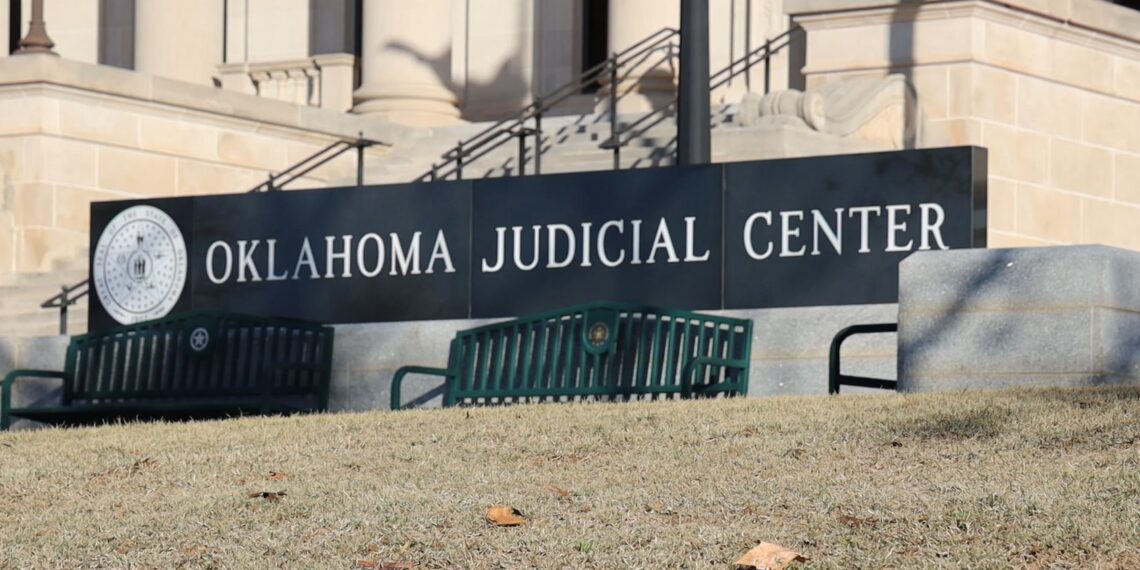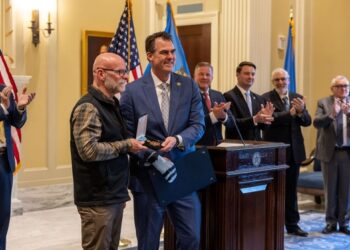OKLAHOMA CITY (OBV) – The Oklahoma Supreme Court determined that State Question 832 (SQ 832), a ballot initiative that seeks to raise the minimum wage, is constitutional and can go before voters.
The state’s high court voted 7-2 to allow the ballot initiative to stand, saying, “Initiative Petition No. 446 does not clearly or manifestly violate either the Oklahoma or United States Constitution.”
The Oklahoma Farm Bureau Legal Foundation and The State Chamber of Oklahoma jointly filed a formal protest in the the Supreme Court challenging the legality of SQ 832 in November.
Chad Warmington, president and CEO of The State Chamber, issued the following statement regarding the court’s decision:
“We are disappointed by the court’s decision to let SQ 832 proceed without providing any justification for the reasoning behind the decision. The six justices making this ruling failed to perform one of the most basic duties of their job by refusing to even author a majority opinion that addresses the serious constitutional arguments we raised in our legal challenge. The Court’s ruling ran counter to its own precedent that was directly on point in this case. By failing to provide reasoning that either explains why that precedent is no longer valid or explains why that precedent does not apply to this state question, the Court has sewn confusion and uncertainty in this area of Oklahoma law.
We commend the three justices who seriously grappled with the questions at hand in their written opinions—two agreed with our position and one did not, but all three took seriously their role as justices on the highest court in Oklahoma. The subject at hand is of great consequence to our state, and the people of Oklahoma deserve insight into the logic used by the court’s majority to reach this conclusion. Justice Rowe was spot on in his dissent, saying that the court desired “to have its cake, by allowing the petition to proceed – and eat it too – by blatantly defying our precedent.
The work has begun related to SQ 832. We look forward to a vigorous campaign to educate Oklahomans about the disastrous policy that will crush working families through price increases on the heels of record inflation and put corner stores and family farms out of business.”
Chad Warmington
SQ 832 seeks to amend the Oklahoma Minimum Wage Act and increase the minimum wage by untying the state from the federal minimum wage. The amendment, if approved, would require employers to pay employees at least $9 per hour beginning in 2025, $10.50 per hour beginning 2026, $12 per hour beginning in 2027, $13.50 per hour beginning in 2028 and $15 per hour beginning in 2029. The wage will increase with the cost of living, beginning in 2030, as measured by the U.S. Department of Labor’s Consumer Price Index for Urban Wage Earners and Clerical Workers (CPI-W).
Oklahoma’s current minimum wage is $7.25.
The court heard from Mithun Mansinghani, the attorney representing the Chamber and Farm Bureau, as well as counsel representing proponents of SQ 832 and counsel representing the Oklahoma Attorney General’s Office, which is challenging the constitutionality of SQ 832.
Mansinghani argued that the SQ 832 petition has a misleading gist, which is a short statement that explains what the initiative petition does. The court has longstanding precedent about what needs to be included or not in the gist to make sure that it is not misleading to voters so that people know what they are signing onto.
Justice John Kane and Justice Dustin Rowe were the dissenting votes. Each wrote a dissenting opinion.
“Today, we ignore clear precedent specifying Constitutional and statutory infirmities in a proposed initiative petition without discussion. The People are entitled to Court decisions which comport with existing law or else give clear explanation when departure from extant law is necessary,” Kane said in his dissent. “In my view, the proposed initiative petition is a violation of the non-delegation doctrine, is not capable of correction by severance, and has a faulty gist.”
A majority opinion was not written, but Justice Dana Kuehn wrote a concurring opinion.
“I agree with the Majority that Initiative Petition 446 should go to a vote of the people. I disagree with its decision to determine whether the Petition itself violates the Oklahoma Constitution,” Kuehn wrote.
Kuehn, Kane and Rowe’s opinions are shared below.
Warmington said the state’s minimum wage rate is not the problem.
“We need to give more Oklahomans opportunities to upskill into the many available, high-paying jobs Oklahoma businesses have already created,” said Warmington. “There are thousands of good jobs paying far more than minimum wage but we don’t have enough personnel with those talents to fill the jobs. We’d like to focus more on developing and ensuring that Oklahomans have access to the education, training, and certifications that they need to fill the thousands of jobs that pay far more than minimum wage. That’s the problem that we ought to be seeking solutions together on.”

















